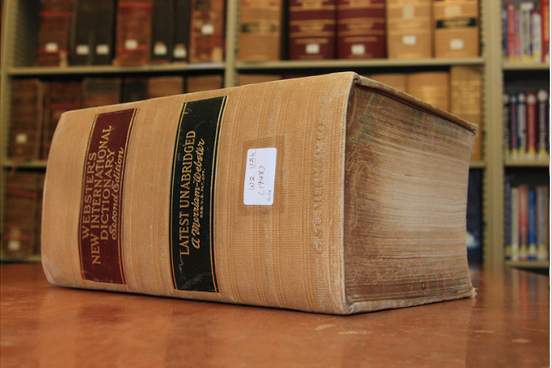Very Long Words
| Y | Q | K | G | E | L | E | C | T | R | O | E | N | C | E | P | H | A | L | O | G | R | A | M | E | E | B | S | J | A | K | P | B | N | Q |
| S | E | C | N | E | G | I | L | L | E | T | N | I | R | E | T | N | U | O | C | E | N | V | L | T | U | F | E | S | E | O | V | H | J | Q |
| N | G | N | I | Z | I | L | A | N | O | I | T | U | T | I | T | S | N | I | E | D | L | E | D | Y | B | Z | N | N | Z | D | B | R | P | G |
| J | Q | N | H | N | C | I | H | P | A | R | G | O | N | I | T | E | R | O | R | T | C | E | L | E | L | Q | C | O | M | Q | G | Y | D | T |
| S | E | S | S | E | N | S | U | O | E | N | A | R | O | P | M | E | T | X | E | T | J | R | Z | E | V | O | I | I | D | C | N | A | D | Q |
| S | L | K | I | E | S | T | S | I | G | O | L | O | I | S | Y | H | P | O | R | T | C | E | L | E | M | E | A | T | E | O | Y | Z | K | X |
| Y | E | W | U | V | K | M | Z | Y | Z | U | K | C | S | C | J | P | V | O | V | C | Q | X | G | P | T | Y | Y | A | P | N | L | S | B | N |
| G | C | C | G | H | P | F | C | K | S | S | S | M | F | B | X | S | P | X | O | J | E | B | A | Z | L | J | S | Z | A | V | L | N | T | O |
| E | T | W | N | Z | O | H | S | A | N | B | E | J | C | E | P | H | J | U | R | K | K | R | A | L | H | E | X | I | R | E | A | O | D | P |
| L | R | J | I | E | I | N | S | E | X | O | Q | C | W | R | S | U | N | C | S | N | T | Y | A | Q | N | V | E | L | T | N | C | I | I | S |
| E | O | E | T | P | C | B | B | P | D | I | W | Z | N | Y | R | T | P | E | O | M | C | C | F | I | K | X | E | I | M | T | I | T | S | I |
| C | P | K | S | L | X | S | L | C | I | I | Z | V | S | E | E | F | S | L | E | L | I | Y | M | S | P | C | N | B | E | I | T | A | T | N |
| T | H | M | I | V | Z | J | E | F | R | W | T | I | C | R | R | S | I | N | N | T | Y | A | D | R | Z | G | H | O | N | O | U | Z | I | W |
| R | O | K | D | O | G | N | I | N | J | Y | O | O | D | O | E | E | T | S | S | Y | S | T | E | C | D | R | H | M | T | N | E | I | N | H |
| O | T | L | A | R | A | Y | S | X | I | L | S | E | E | N | U | A | F | I | I | O | A | S | E | C | H | J | C | R | A | A | P | L | G | S |
| O | O | M | R | M | A | M | Z | C | O | M | M | T | E | L | L | N | L | S | R | D | S | Z | O | T | C | J | I | E | L | L | A | A | U | N |
| C | G | P | T | P | W | A | S | G | H | O | U | L | A | I | C | A | T | T | N | I | D | U | Z | F | O | M | O | T | I | I | R | I | I | O |
| U | R | V | N | Z | L | N | I | F | N | L | B | L | Z | L | I | U | I | E | O | A | N | B | Q | S | A | L | Y | N | Z | Z | E | R | S | I |
| L | A | V | O | P | S | C | J | S | F | I | O | A | O | T | L | N | N | N | R | T | R | E | X | L | F | Q | W | U | A | A | H | T | H | T |
| O | P | I | C | T | A | T | T | G | S | L | T | R | N | R | L | O | L | O | E | R | N | T | Y | P | V | V | B | O | T | T | T | S | A | A |
| G | H | Z | V | L | Y | R | K | N | O | I | G | E | O | Y | T | E | G | R | B | W | E | B | R | K | O | J | H | C | I | I | O | U | B | I |
| R | I | A | Q | W | A | F | E | X | O | B | T | G | H | F | S | C | D | R | A | I | J | V | C | E | P | G | B | K | O | O | M | D | I | T |
| A | E | P | H | T | I | H | I | N | Y | S | N | T | L | S | L | E | E | I | A | H | R | I | O | S | T | P | Q | K | N | N | E | N | L | N |
| P | S | Z | O | N | E | M | E | M | I | N | E | F | N | K | M | O | W | L | W | P | S | Y | O | L | U | N | J | Z | S | S | H | I | I | E |
| H | V | R | G | R | W | E | Y | X | T | M | R | E | Y | O | I | K | U | Y | E | M | H | I | X | Z | U | R | U | B | V | L | C | E | T | R |
| I | S | E | P | H | G | L | E | V | I | U | S | J | N | Q | T | W | W | R | H | F | H | I | Y | O | J | T | G | O | Y | J | X | D | I | E |
| E | V | M | H | Q | M | C | R | D | N | S | R | S | A | X | G | H | L | Y | O | X | P | L | C | O | E | H | I | C | C | A | Q | I | E | F |
| S | O | M | B | C | H | Y | K | P | E | U | T | P | H | O | U | Q | H | S | S | M | O | D | E | A | W | D | Y | O | O | S | T | X | S | F |
| C | C | O | U | N | T | E | R | S | U | R | V | E | I | L | L | A | N | C | E | S | E | G | T | Y | L | X | U | X | N | R | U | O | H | I |
| O | X | D | E | Y | S | X | Q | O | A | V | M | W | Q | Y | Y | H | D | Z | Z | X | Q | T | W | O | H | L | I | L | V | A | W | Y | E | D |
| V | W | N | O | I | T | A | R | T | S | N | O | M | E | D | R | E | T | N | U | O | C | V | H | I | S | X | Y | L | L | Y | R | A | T | O |
| G | I | X | J | W | O | Z | I | F | N | D | E | H | Y | D | R | O | C | H | L | O | R | I | N | A | T | I | O | N | S | S | G | Y | X | T |
| A | U | Z | A | B | O | N | S | I | T | I | D | R | A | C | O | Y | M | O | L | A | H | P | E | C | N | E | S | P | W | U | L | Z | K | Y |
| P | Z | T | I | E | G | E | L | E | C | T | R | O | C | A | R | D | I | O | G | R | A | P | H | I | C | E | R | C | P | T | K | G | N | C |
| J | A | P | R | O | Q | S | G | N | I | N | O | I | T | I | D | N | O | C | R | E | T | N | U | O | C | A | S | Z | I | S | Q | I | I | N |
|
||||||||||||||||||||||||||||||||||||
|
1 |
Answer
This worksheet is suitable for individuals or educators that want something with a difficulty level of Jumbo.
You can find the words in the grid by looking Diagonal, Forward, Backward, Up, and Down. Circle them with a pencil or use a marker to highlight the letters.
But most of all HAVE FUN!!!
Ready to take your Scrabble skills to the next level? This list of the longest words in the English language could score you major points on your next game — if you can remember how to spell them.
Some of the words that qualify for the title take hours to pronounce, like the 189,819-letter word for the protein Titin. Additionally, many of the longest words are medical terms, so we have excluded some of them to allow for more variety. The end result is a list of fascinatingly lengthy words that will make your vocabulary downright sesquipedalian.
Antidisestablishmentarianism
Part of Speech: noun
Definition: opposition to the disestablishment of the Church of England
Origins: While the word originated in 19th century Britain, it is now used to refer to any opposition to a government withdrawing support from a religious organization. Though rarely used in casual conversation, the word was featured in the Duke Ellington song, “You’re Just an Old Antidisestablishmentarianist.”
Floccinaucinihilipilification
Part of Speech: noun
Definition: the act of defining or estimating something as worthless
Origins: This word stems from the combination of four Latin words, all of which signify that something has little value: flocci, nauci, nihili, pilifi. This style of word creation was popular in Britain in the 1700s.
Pneumonoultramicroscopicsilicovolcanoconiosis
Part of Speech: noun
Definition: an invented word said to mean a lung disease caused by inhaling a fine dust
Origins: This word emerged in the late 1930s, and was said to be invented by Everett K. Smith, president of the National Puzzlers’ League, in an imitation of very long medical terms. It is not found in real medical usage.
Pseudopseudohypoparathyroidism
Part of Speech: noun
Definition: an inherited disorder similar to pseudohypoparathyroidism
Origins: This genetic disorder causes “short stature, round face and short hand bones,” according to the National Institutes of Health. Despite having a similar name, it is not the same as pseudohypoparathyroidism.
Psychoneuroendocrinological
Part of Speech: adjective
Definition: of or related to to the branch of science concerned with the relationships between psychology, the nervous system, and the endocrine system
Origins: This term was first seen in the 1970s in Journal of Neurological Science, a medical journal.
Sesquipedalian
Part of Speech: adjective
Definition: having many syllables or characterized by the use of long words
Origins: The Roman poet Horace used this term to caution young poets against relying on words that used a large number of letters. It was adopted in the 17th century by poets to ridicule their peers who used lengthy words.
Hippopotomonstrosesquippedaliophobia
Part of Speech: noun
Definition: fear of long words
Fun Fact: This word is most often used in humorous contexts. It is an extension of the word sesquipedalophobia, which has the same meaning and is more often used in a formal context.
Incomprehensibilities
Part of Speech: noun
Definition: things that are impossible to understand or comprehend
Fun Fact: In the 1990s, this word was named the longest word in common usage.
Uncopyrightable
Part of Speech: adjective
Definition: not able or allowed to be protected by copyright
Fun Fact: This word is one of the longest isograms (a word that does not repeat letters) in the English language.
Dermatoglyphics
Part of Speech: noun
Definition: the scientific study of hands, including fingerprints, lines, mounts, and shapes
Fun Fact: Unlike palmistry, this study is based in science and is often used in criminology as a way to identify both perpetrators and victims.
Euouae
Part of Speech: noun
Definition: a type of cadence in medieval music
Fun Fact: While this word might not look as impressive as others on this list, it’s the longest word in the English language to be composed entirely of vowels. (It’s also the word with the longest string of vowels.)
Psychophysicotherapeutics
Part of Speech: noun
Definition: a therapeutic approach that integrates both the mind and body
Fun Fact: While the Oxford Dictionary does not provide an official definition of this word, it is included on their list of the longest words in the English language.
Otorhinolaryngological
Part of Speech: adjective
Definition: of or relating to the medical specialization involving the ear, nose, and throat
Fun Fact: This medical specialization is more commonly known by its acronym, ENT.
The Longest Words in English
Most English words longer than about 15-20 letters are scientific, meaningless, or highly specialized, and they tend to be formed by affixation. This is the act or process of adding affixes to a base word to produce a derivative word—in the word affixation, for instance, -ation is an affix. Here are some of the longest words.
The longest word entered in most standard English dictionaries is Pneumonoultramicroscopicsilicovolcanoconiosis with 45 letters. Our definition is «a lung disease caused by inhalation of very fine silicate or quartz dust.» The entry for this word can be found in our Medical Dictionary.
Yes, that number is correct. The longest string of letters used to describe something isn’t technically a word—it’s the chemical name for a protein, begins with methionylthreonylthreonylglutaminyl…, and continues for quite a while after that. The name has 189,819 letters, fills more than 50 pages, and takes more than three hours to say. If you’ve got three hours to blow, you can listen to it said here.
28, 29, and 34 Letters
There are some long words that are rarely or never used in a sentence, but instead are simply used as examples of long words, and for that reason we don’t include them in our dictionaries. The most famous of these are antidisestablishmentarianism, which has 28 letters and supercalifragilisticexpialidocious, which has 34 letters. Floccinaucinihilipilification (29 letters) («the act or habit of assessing something as worthless») is another of this ilk. Our claim is not that these aren’t words, but that they aren’t words that meet our criteria for entry. We explain why here.
The longest place name in the United States is possibly a lake in Massachusetts called Lake Chargoggagoggmanchauggauggagoggchaubunagungamaugg (49 letters, or 53, if you count the Lake portion). It is also sometimes called Webster Lake. While the longer name is based on earlier names for the lake from the language of the Nipmuc people who inhabited the area, this version of the name—along with its reputed translation, «You fish on your side; I fish on my side; nobody fishes in the middle”—appears to have been the invention of a local newspaper editor.
Photo: Hill near Hawkes Bay, NZ
The longest place name in the English-speaking world is thought to be a 1,001-foot-high hill in New Zealand called Taumatawhakatangihangakoauauotamateaturipukakapikimaungahoronukupokaiwhenu-akitanatahu. Similar to the lake mentioned above, this place name also has spelling variations. It comes from the Maori language and has been translated as “the place where Tamatea, the man who had big knees, the climber of mountains, the slider, the land-swallower that traveled about, played the nose flute that he had to the loved ones.” The hill is sometimes called “Taumata” for short.
30 Letters
29 Letters
Methylenedioxymethamphetamine refers to a synthetic amphetamine used illicitly for its mood-enhancing and hallucinogenic properties. You may know this drug by another, shorter, name: ecstasy. Or you may know it by an even shorter name: MDMA. (Fun fact: in the 1970’s psychiatrists used it to «enhance» therapy sessions.)
23, 24, 25, 26, and 27 Letters
22 Letters
Counterrevolutionaries refers to people who participate in a revolution directed toward overthrowing a government or social system established by a previous revolution.
Deinstitutionalization refers to the release of institutionalized individuals from institutional care (as in a psychiatric hospital) to care in the community, and also to the reform or modification of an institution to remove or disguise its institutional character..
Otorhinolaryngological refers to a medical specialty concerned especially with the ear, nose, and throat and related parts of the head and neck.
21 Letters
Incomprehensibilities refers to things that are hard to comprehend or understand. (We’re pretty sure most of these words qualify.)
Pseudohermaphroditism refers to the condition of having the gonads and karyotype of one sex and external genitalia that is of the other sex or is ambiguous.
And finally, psychoneuroimmunology refers to a branch of medicine that deals with the influence of emotional states and nervous system activities on immune function.
(Did you count only 20 words in the list? The 21st is hippopotomonstrosesquippedaliophobia, which is fear of long words. Apologies to anyone who suffers from this condition with its 36-letter name—we’re sure we’ve made it worse.)
By
Last updated:
March 10, 2023
The longest word in the English language is “pneumonoultramicroscopicsilicovolcanoconiosis.”
Try saying that quickly five times!
In this post we’ll explore some of the longest words in English, plus teach you how to break them down so that you can pronounce them easily.
Contents
- Longest Word in English: Pneumonoultramicroscopicsilicovolcanoconiosis
- More Long Words in English
-
- Methionylthreonylthreonylglutaminylalanyl…isoleucine
- Floccinaucinihilipilification
- Incomprehensibility
- Surreptitious
- Uncharacteristically
- Supercalifragilisticexpialidocious
- Subdermatoglyphic
- Abstentious
- Uncopyrightable
- Hippopotomonstrosesquipedaliophobia
- Antidisestablishmentarianism
- Honorificabilitudinitatibus
- Pseudopseudohypoparathyroidism
- Longest Adjectives in English
- Longest Suffixes in English
- Longest Prefixes in English
- Longest Verbs in English
- How to Learn the Longest Words in English
Download:
This blog post is available as a convenient and portable PDF that you
can take anywhere.
Click here to get a copy. (Download)
Longest Word in English: Pneumonoultramicroscopicsilicovolcanoconiosis
Letters: 45
Definition (noun): Lung disease caused by breathing in dust or volcanic ash
The patient is experiencing signs of pneumonoultramicroscopicsilicovolcanoconiosis after hiking near the site of a volcanic eruption.
This is the longest word that exists in the English language. As with other long words, you should be patient and break it down into its individual components.
As you can see below, knowing the parts of this word will be especially helpful for anyone studying English in an academic, scientific or medical environment.
Essential word parts: Pneumo- (lung), microscopic- (small), coni- (particles) and a suffix: -osis (often indicates a disease).
More Long Words in English
We will show you the essential parts of these long words that can help you learn the word itself and other English words. We will specifically note common English prefixes and suffixes to pay attention to.
Methionylthreonylthreonylglutaminylalanyl…isoleucine
Letters: 189,819
Definition (noun): Chemical composition of “titin,” which is the largest known protein in the body
This word has taken some people around 2-3.5 hours to pronounce! Amazing, isn’t it? It’s not, however, considered the longest word in English—because it’s not in a dictionary.
Essential word parts: Amino acid residues that make up the protein. These include methionine, threonine, glutamine, alanine, and isoleucine.
Floccinaucinihilipilification
Letters: 29
Definition (noun): Deciding that something has no value
Since my wallet was becoming so huge, I took a few minutes for some floccinaucinihilipilification of all the old cards I was keeping in there.
This is one of those complex words that seems made up. It was formed from various Latin words and can still be confusing to understand after breaking it down.
Essential word part: Nihili- (nothing)
Incomprehensibility
Letters: 19
Definition (noun): Impossible to understand
The incomprehensibility of the word made people question its meaning.
This word has common prefixes and suffixes that you will see in many other English words. Plus, you may already be familiar with more basic forms of this word, such as incomprehensible (adjective — impossible to understand)
Essential word parts: include a prefix in- (not), a root word prehend (from the Latin for “grasp”), and a suffix: –ity (suffix used to form a noun out of an adjective).
Surreptitious
Letters: 13
Definition (adjective): Secret, stealthy
The robbers were surreptitious as they stole the jewels.
This word is used fairly regularly among native English speakers. It is one of the less complex long English words.
Essential word part: Prefix: sur- (under, below)
Uncharacteristically
Letters: 20
Definition (adverb): Not typical
The star basketball player uncharacteristically missed the game-winning shot.
Here is another fairly standard word that helps you practice both a common prefix and suffix.
Essential word parts: Prefix: un- (not) and a suffix: -ly (used to form an adjective)
Supercalifragilisticexpialidocious
Letters: 34
Definition (adjective): Especially wonderful
The sun is shining and all is right in the world. It is a supercalifragilisticexpialidocious day.
This is a made-up word that native English speakers recognize from the classic 1964 “Mary Poppins” movie (although a version of this word was invented even earlier).
Essential word parts: Cali- (beauty).
Subdermatoglyphic
Letters: 17
Definition (adjective): Pertaining to the layer of the skin beneath the fingertips
The subdermatoglyphic state of everyone’s fingerprints are different.
This word is extremely rare, and may be more interesting to linguists than to medical professionals. That is because it is a very long isogram, or a word that does not repeat any letters.
Essential word parts: Prefix: sub- (under, below — similar to “sur-“), derma- (skin) and a suffix: -ic (used to form an adjective).
Abstentious
Letters: 11
Definition (adjective): Self-restraining
You never have trouble sticking to your diet. You are so abstentious!
You will more commonly hear abstain, the verb form of this word. Abstain means to avoid or restrain yourself from something, like alcohol, online-shopping, food, etc.
Essential word parts: Suffix: -ious (used to form an adjective).
Uncopyrightable
Letters: 15
Definition (adjective): Not able to copyright a piece of artwork. If something is uncopyrightable, one person cannot prevent others from copying or distributing the art.
The idea was not original, so it was unfortunately uncopyrightable.
Un- and -able are common word parts. Try to memorize these and look for them in other English words.
Essential word parts: Prefix: un- (not) and a suffix: -able (ability).
Hippopotomonstrosesquipedaliophobia
Letters: 35
Definition (noun): Fear of long words
As she read this article, she realized that she had a severe case of hippopotomonstrosesquipedaliophobia.
This may be how you are feeling right now.
Essential word parts: Suffix: -phobia (fear).
Antidisestablishmentarianism
Letters: 28
Definition (noun): A political philosophy opposed to the disestablishment of the Church of England.
The word was used to describe a political movement in England in the 1800s. People supporting this movement were against a plan to separate the church from the state.
There were many supporters of antidisestablishmentarianism in Wales.
Essential word parts: Prefix: anti- (against) and dis- (opposite of), suffix: -arian (engaged in), and -ism (a belief in).
Honorificabilitudinitatibus
Letters: 27
Definition (noun): State of being able to achieve honors.
Dumbledore was well-known for lots of things, including being honorificabilitudinitatibus.
This rare Latin word features in William Shakespeare’s play “Love’s Labour’s Lost.”
Essential word parts: A root word honorificabilitudin (the state of being honorable) and suffix: –itatibus (a state of being).
Pseudopseudohypoparathyroidism
Letters: 28
Definition (noun): A rare inherited endocrine disorder that causes abnormal growth of bones.
She was diagnosed with pseudopseudohypoparathyroidism.
Essential word parts: Pseudo-(prefix) meaning false, hypo-(prefix) meaning below. Parathyroid- (root word) small glands in our body which regulate calcium, and -ism (suffix) meaning “a belief in.”
Longest Adjectives in English
- Unconventionally — something or someone is not following accepted standards or conventions (14 letters)
- Uncontrollably — in a way that is too strong to be restrained or controlled (13 letters)
- Unforgettably — in a manner that you cannot forget it (13 letters)
- Unimaginably — in a way that’s difficult to imagine (12 letters)
- Unmistakably — in a way that cannot be mistaken for something else (12 letters)
- Unquestionably — in a way that cannot be doubted (13 letters)
- Unreasonably — meaning that something is unfair or not based on good sense (12 letters)
- Unstoppably — in a way that is unable to be stopped (11 letters)
- Unthinkably — it means that something cannot be accepted as a possibility (11 letters)
Longest Suffixes in English
- –-ization — it creates a noun that denotes the act, process or result of an action (9 letters)
- –-iveness — it shows a quality or tendency (9 letters)
- –-fullness — it creates a noun that denotes the quality of being full or complete (9 letters)
Longest Prefixes in English
- Inter- — meaning between, among (5 letters)
- Trans- — meaning across or beyond (5 letters)
- Hyper- — means excessively, beyond normal (5 letters)
- Super- — meaning above, beyond (5 letters)
- Ultra- — meaning extremely, beyond normal (5 letters)
- Mega- — means very large, huge (5 letters)
Longest Verbs in English
- Counterdemonstrate — to demonstrate in opposition to another demonstration (14 letters)
- Decontaminate — to remove dangerous substances from something (12 letters)
- Disenfranchise — to deprive someone of a right or privilege, especially of the right to vote (12 letters)
- Disseminate — to spread widely or to scatter (11 letters)
- Encapsulate — to enclose something in a capsule (11 letters)
- Excommunicate — to expel from a church or other religious organization (12 letters)
- Extrapolate — to infer from known facts or data (11 letters)
- Hypothesize — to form a hypothesis or conjecture (11 letters)
- Interrogate — to question formally or search thoroughly (11 letters)
- Reincorporate — to incorporate again or anew (13 letters)
How to Learn the Longest Words in English
Firstly: Break each word down into manageable parts
While long English words can seem complex, breaking them down into parts will make learning them easier!
Each of the words we discuss in this article, we will show you the important elements including prefixes, suffixes and roots. Let’s define the parts of a word and what they represent.
- Root word: the base form of a word
- Prefix: an element attached to the beginning of a root word that alters its meaning
- Suffix: an element attached to the end of a root word that alters its meaning
Secondly: Use vocabulary memory tricks
-
Put the words and word parts onto flashcards.
Flashcards are a perfect way to study and memorize long words. The language learning program FluentU allows you to make your own multimedia flashcards which are connected to a curated library of authentic videos—including news reports, inspiring talks and music videos. - Keep a running list. Track word components in a notebook. Any time you encounter a new prefix, suffix or root word, write it down in your list. This will help you keep track of the word parts you learn. You can refer to this list as you try to learn other long and complex words.
But most importantly, try to have fun with these words. Be patient and you will start pronouncing them in no time!
Download:
This blog post is available as a convenient and portable PDF that you
can take anywhere.
Click here to get a copy. (Download)
For the long time, lexicographers have been debating about the legitimacy of certain words as possible entrants to the English dictionary. For me, the longer the word and the more the number of syllables in it, the more interesting it becomes. Find out some of the most exquisitely coined words in the English language from this article.
Longest word
Methionylthreonylthreonylglutaminylarginyl […] isoleucine
Here’s the deal: the world’s longest English word has exactly 189,819 letters in it and it takes 3 hours and 33 minutes to pronounce it completely!
Wondering what commands such an enormous (literally) honor? Well, it is the chemical name of the world’s largest known protein called titin or connectin. It is made up of 244 individually folded protein domains which in turn are connected by unstructured peptide sequences (largest known polypeptide containing 34,350 amino acids in the human body). Fascinating as the name of this wonder is, there exists some debate as to whether this technical term can actually be considered a word. But even then, mesmerizing it is, isn’t it? And guess what? Here in this article, you will actually get to see this ginormous word if you read on.
But even otherwise, the English language is a huge storehouse of long words that I find rather satisfying to pronounce. They are grand tongue twisters that make perfect sense. Two of my favorite words for the longest time have been inconsequential and quintessentially. I am psychologically satiated to the hilt every time I utter them and utter them a lot I do. But there are other words that are very rarely used and even more rarely heard of. Let’s check some of them out below. If you love the language and lap up trivia like there’s no tomorrow, this is a train ride you should definitely not miss.
A

1. Ablutophobia: Fear of washing or having a bath
2. Absorbefacient: Inducing or boosting absorption
3. Adiathermancy: Impervious to radiant heat or infrared radiation or unaffected by heat waves
4. Agglutination: The construction of words from component morphemes that retain their form and meaning in spite of the blending
5. Arachibutyrophobia: One having fear about peanut butter sticking to the mouth roof
6. Aurantiaceous: Appertaining to oranges or orange trees
7. Automatonophobia: One having fear about dummies, animatronic creatures, statues of wax
8. Autothaumaturgist: A person who exudes an air of mystery around himself consciously; someone pretending to be an enigma
9. Autotonsorialist: A person who cuts his own hair
10. Automysophobia: Fear of getting dirty
B

1. Ballistocardiograph: An instrument which is used to detect body movements caused by heartbeats
2. Bathythermograph: An instrument that is used for recording water temperature as compared to depth
3. Batrachomyomachy: A military engagement between frogs and mice
4. Batrachophagous: A person who eats frogs
5. Bicrescentic: Having the structure of a double crescent
6. Blandiloquence: A flattery or complimentary speech
7. Brachydactylous: Having abnormally short and blunt fingers and toes
8. Brobdingnagian: Colossal
9. Bouleversement: An overturning; ruination
10. Boustrophedon: An ancient method of writing in which one line is written from left to right and the next from right to left and so on.
C

1. Cacodemomania: Pathological belief of one being inhabited by an evil spirit
2. Caesaropapism: Secular ruler having control of the church
3. Catapedamania: Obsession with jumping from high places
4. Cephalonomancy: A kind of divination formerly practiced to detect guilt in a convict by boiling the skull of an ass and checking for any cracking of the skull or movement of the lower jaw
5. Ceruminiferous: Carrying or yielding earwax
6. Chaetophorous: Setigerous or bristle-bearing
7. Cheiloproclitic: One who is attracted to lips
8. Cholangiocholecystocholedochectomy: Process of surgically removing the hepatic duct and gallbladder
9. Chronosynchronicity: Presenting a person’s life in all the stages through a single piece of art
10. Cycloganoidei: Ganoid fish with cycloid scales
D

1. Dactylopterous: A state where the inferior rays of the pectoral fins are entirely or partially detached from the body
2. Defecaloesiophobia: Fear of painful defecation
3. Dendrochronology: Study of tree rings
4. Deorsumversion: Turning downwards
5. Dermatoglyphics: Study of fingerprints and skin patterns
6. Dermatopathophobia: Fear of dermal ailments
7. Didaskaleinophobia: Fear of going to school
8. Dishabiliophobia: Fear of undressing in front of another person
9. Dolichocephalic: Long-headed
10. Dysmorphophobia: Having the fear of physical deformities
E

1. Ecclesiasticus: An Apocryphal book
2. Edriophthalmous: Concerning the Edriophthalma
3. Electroencephalograph: An instrument for measuring the brain’s electrical impulses
4. Electrodynamometer: An instrument for measuring electric current
5. Eleutherophobia: Fear of freedom
6. Epiphenomenalism: Doctrine that mental processes are epiphenomena of brain activity
7. Ephemeromorph: Form of life that is neither animal nor plant
8. Epistaxiophobia: Fear of epistaxises or bleeding noses
9. Ethnomethodology: The study of sociological codes and conventions that underlie everyday social communication and interactions
10. Extemporaneousness: Lack of foresight
F

1. Febrifacient: That which renders feverish
2. Ferriprussiate: A ferricyanate; a ferricyanide
3. Flagelliferous: Bearing a whip or flagellum
4. Flibbertigibbet: Gossipy person, usually referring to a young woman
5. Fibriophobia: Having fear of fever
6. Fibrochondrosteal: Partly fibrous, partly cartilaginous, and partly bony or osseous
7. Fissigemmation: A process of reproduction that intercedes fission and gemmation
8. Forisfamiliation: The act of liberating oneself from parental authority
9. Frankalmoigne: Tenure by free alms
10. Frumentaceous: Resembling wheat or other grain
G

1. Galactodensimeter: Instrument used to measure the density of milk
2. Gastroduodenitis: Swelling of the stomach and duodenum
3. Gastrohysterotomy: Cæsarean section
4. Generalissimo: The Chief Commander of an army
5. Gephydrophobia: Fear of crossing bridges
6. Germanophilia: Love or fondness for Germany or for the Germans
7. Gluconeogenesis: Production of glucose from non-carbohydrates
8. Graminivorous: Feeding on grass or cereals
9. Grammaticaster: A piddling grammarian
10. Gynotikolobomassophile: One nibbling a woman’s earlobes
H

1. Haematogenesis: Production of blood
2. Haematodynamometer: An instrument to measure arterial or venous blood pressure
3. Haussmannize: To rebuild
4. Hellenologophobia: Fear of Greek terms or complex scientific nomenclature
5. Helioseismology: Study of wave oscillations in the sun
6. Hexakosioihexekontahexaphobia: Fear of the number six hundred sixty-six
7. Honorificabilitudinitatibus: One bearing honorableness
8. Honorificabilitudinity: Honorableness
9. Hydrometeorology: Study of atmospheric moisture
10. Hypercatalectic: Having an extra syllable at the end of a verse
I

1. Iatromathematics: Archaic practice of medicine in conjunction with astrology
2. Ichthyophagous: Fish-eating
3. Ichthyophthalmite: A hydrous silicate of calcium and potassium relating to zeolites
4. Immarcescible: Not perishable
5. Immunopathology: Study of immunity to disease
6. Incircumscriptible: Incapable of being restricted
7. Incomprehensibleness: Impossible to know or fathom
8. Interramification: Intertwining of branches
9. Interstratification: Alternative layering of two or more types of clay minerals
10. Ithyphallophobia: Fear of aroused male genitalia
J

1. Jaculiferous: Bearing arrow-like thorns
2. Japanophilia: Love or admiration for Japan or the Japanese
3. Japanophobia: Fear of Japanese
4. Johannisberger: A fine white wine produced on the estate of Schloss Johannisberg, on the river Rhine
5. Jouissance: Merriment
6. Judeophobia: Fear of Jewish people
7. Juglandaceous: Liking or pertaining to walnuts
8. Jungermanniaceae: A genus of hepatic mosses
9. Jurisprudential: Pertaining to the science of juridical law
10. Juxtaposition: The act of positioning two or more things adjacent to each other
K

1. Kakorrhaphiophobia: Fear of failure
2. Katagelophobia: Fear of ridicule
3. Katathermometer: Instrument used to measure the cooling power of air
4. Katsaridaphobia: Fear of cockroaches
5. Kephalonomancy: Divination using a baked head of an ass or a goat
6. Keraunophobia (or Ceraunophobia): Fear of lightning and thunder
7. Kinetheodolite: Type of theodolite used to track missiles and satellites
8. Knickerbockers: Loose breeches ending above the knee
9. Knickknackatory: A collection of baubles and trifles
10. Kosmikophobia: Fear of cosmic phenomenon
L

1. Lamellibranchiata: Class of gastropods with bivalve shells
2. Laryngotracheotomy: Surgery involving cutting into the larynx and the upper part of the trachea
3. Latitudinarianism: Doctrine of broad liberality in religious belief or conduct
4. Lautenclavicymbel: Lute harpsichord with gut strings instead of metal
5. Lautverschiebung: The regular alterations undergone by the primitive Indo-European stops or mute consonants in the Teutonic languages since third century BC
6. Lepidopterology: Study about butterflies and moths
7. Leucocytogenesis: Formation of leukocytes
8. Lexicographical: Pertaining to the art of making a dictionary or lexicon
9. Libanophorous: Producing incense
10. Logizomechanophobia: Fear of computers
M

1. Machiavellianism: The doctrines of Niccolò Machiavelli as written in his book Il Principe (“The Prince”) wherein political expediency is exalted above morality and the use of cunning and deceit in statecraft to maintain authority or to effectuate policy is commended
2. Macrocephalous: Having a large head
3. Margaritomancy: Divination using pearls
4. Maschalephidrosis: Excessive sweating of the armpits
5. Mechanotherapist: A practitioner who medically treats by employing mechanical practices, such as massaging
6. Medomalacuphobia: Fear of losing an erection
7. Metathesiophobia: Fear of changes
8. Microminiaturization: Construction of something on a scale which is smaller than miniature
9. Micropalaeontology: Study of microscopic fossils
10. Monopathophobia: Fear of definite disease
N

1. Necessitarianism: Philosophical theory according to which actions are always consequent to antecedent causes
2. Nemathelminthes: Roundworms
3. Neopharmaphobia: Fear of new drugs
4. Nephelodometer: An instrument for estimating the distances or speed of clouds
5. Neurophysiological: Pertaining to the branch of physiology that deals with the functions of the nervous system
6. Nigroglobulate: The act of excluding someone by a negative vote or veto
7. Noctambulation: Sleepwalking
8. Nucamentaceous: Resembling a nut either structurally or their property of indehiscence; bearing one-seeded nut-like fruits
9. Nucleomituphobia: Fear of nuclear weapons
10. Nyctohylophobia: Fear of dark wooded areas at night
O

1. Obeliscolychny: Lighthouse
2. Obsequiousness: Abject submissiveness
3. Omphalopsychite: One who meditates by stares fixedly at his navel
4. Oneirogmophobia: Fear of wet dreams
5. Ophthalmophobia: Fear of being stared at
6. Ophthalmoscope: Instrument for viewing the interior of the eye
7. Opisthobranchiata: Marine gastropod mollusks with no operculum and gills present posterior to the heart
8. Orphanotrophism: Care and support of orphans
9. Ostraconophobia: Fear of shellfish
10. Otorhinolaryngology: It is a study of ear, nose, and throat
P

1. Palaeoanthropology: The study of early humans
2. Paleophytologist: One versed in the recovery and identification of plant fossils from geological contexts
3. Paraskavedekatriaphobia: Fear of Friday the 13th
4. Penecontemporaneous: Of geological processes occurring immediately after deposition
5. Philoprogenitiveness: The love of offspring
6. Pleuroperipneumony: Inflammation of the pleura and lungs
7. Pneumatophilosophy: Philosophy of spirits or the spirit world
8. Podobromhidrosis: Smelly feet
9. Pseudoantidisestablishmentarianism: Falsely supporting the idea of disestablishment
10. Pteromerhanophobia: Fear of flying
Q

1. Quadragesimarian: One who observes Lent
2. Quadrigeminous: Four-fold
3. Quadrigenarious: Four hundred
4. Quasquicentennial: One hundred twenty-fifth anniversary
5. Quatrefeuille: An ornamental foliation having four foils
6. Quindecemvirate: The body or office of the fifteen sacerdotal college men bestowed with the primary duty of protecting the Sibylline books
7. Quinquagenarian: Person between the ages of 50 and 59
8. Quinquedentated: Five-toothed
9. Quoddamodotative: Existing in a certain manner
10. Quomodocunquize: Making money in any possible way
R

1. Radappertization: Treatment of food with ionizing radiation to kill bacteria
2. Radiometeorograph: An instrument for measuring atmospheric conditions at high altitude
3. Rambunctiousness: The state of being boisterous and disorderly
4. Ranidaphobia: Fear of frogs
5. Representationalism: Doctrine that ideas rather than external objects are basis of knowledge
6. Retrovaccination: The inoculation of a cow with human vaccination in which smallpox virus from human vesicles is used as seed virus in producing smallpox vaccine in cattle
7. Rhabdophobia: Fear of being severely punished or beaten by a rod, or of being severely criticized
8. Rhinotillexomania: Compulsive nose picking
9. Rodomontadist: A person who boasts
10. Roentgenometrics: A chiropractic technique involving the study of X-rays by biomechanical analysis and measurement
S

1. Sacramentarianism: Belief that sacraments have unusual properties
2. Scrophulariaceous: Pertaining to the figwort family of plants (Scrophulariaceae)
3. Secundogeniture: The right of inheritance belonging to the second-oldest child
4. Sesquicentennially: Every 150 years
5. Siderodromophobia: Fear of trains, railroads or train travel
6. Spasmenagaliaphobia: Fear of shattered glass
7. Spermatophobia: The fear of germs
8. Spectroheliokinematograph: Camera for taking pictures of the sun
9. Sphygmomanometer: An instrument for measuring arterial blood pressure
10. Steganophthalmata: A division of jellyfishes, including most of the large disklike species
T

1. Trinitrophenylmethylnitramine: A type of explosive
2. Tetrakishexahedron: A solid in the isometric system, bounded by 24 congruent isosceles-triangular faces, four corresponding to each face of the cube
3. Thanatognomonic: Indicating death
4. Theologicophobia: Fear of theology
5. Theophilanthropism: Having love for divinity as well as mankind
6. Thermoluminescence: A form of luminescence that is exhibited by certain crystalline materials that may have absorbed energy previously
7. Transmogrification: Transformation to a different form or shape, especially strange or grotesque
8. Trichopathophobia: Fear of hair
9. Triskaidekaphobia: Phobia of the number 13
10. Triboluminescence: Frictional emission of light
U

1. Ubiquitarianism: Belief in the omnipresence of God
2. Ultramicroscope: Instrument for viewing objects that are difficult to see by the naked eye
3. Ultimogeniture: The right of inheritance belonging to the last son
4. Umbraculiform: Umbrella-shaped
5. Uncircumstandtial: Not circumstantial; trivial
6. Uncompartmentalized: Not separated into different categories or compartments
7. Unconsentaneous: Disagreement
8. Uniformitarianism: The theory or assumption that the same natural laws and processes that operate in the universe now, have operated since its inception and apply everywhere in the universe and that all geological phenomena may be explained as the result of these existing forces
9. Unsoutcheoned: Destitute of an escutcheon
10. Utilitarianism: Adopting a code of conduct that determines ethical values
V

1. Valetudinarianism: The condition or state of mind of a sickly or weak person who is incessantly worried about personal health
2. Vasoconstriction: Narrowing of the blood vessels owing to the contraction of their muscular walls
3. Venturesomeness: Daring and adventurous
4. Venustraphobia: Being scared of beautiful women
5. Verminophobia: Being afraid of germs
6. Vernacularization: The act, process, or state of picking elements from a foreign language and modifying and accepting it as a part of a native dialect of a specific population
7. Virginitiphobia: Fear of rape
8. Vitricophobic: One who fears his step-father
9. Volumenometer: Instrument that determines volume of a solid
10. Voicespondence: Correspondence by means of formerly recorded conversations
W

1. Walloonphobia: Fear of Walloons (French-speaking Belgian community)
2. Wawaskeesh: An American elk
3. welterweight: A combat sports weight class division
4. Weatherometer: Instrument for measuring weather-resisting properties of paint
5. Weatherstripping: Material to seal the openings such as doors, trunks, windows to exclude the cold, wind, and rain
6. Weltanschauungen: One’s individual or a group’s outlook towards life
7. Whereinsoever: In whatever matter, respect, place, or action
8. Whippersnappers: People considered insignificant and pretentious
9. Whippoorwill: Night-jar from America
10. Whithersoever: Wherever
X

1. Xanthocyanopsy: Kind of color-blindness in which one can see only blue and yellow colors
2. Xanthomelanous: Pertaining to races with black hair and yellow or olive complexion
3. Xanthophobia: Fearful towards yellow color
4. Xanthospermous: Containing yellow seeds
5. Xenodocheionology: Liking for hotels and inns
6. Xenoglossophobia: Fear of foreign languages
7. Xerophthalmia: Dry eye syndrome
8. Xeroradiography: Kind of X-ray wherein the picture is taken on a paper and not on a film
9. Xiphophyllous: Sword-shaped leaved
10. Xylopyrographist: A poker painter
Y

1. Yachtsmanship: Adeptness in sailing a yacht
2. Yarborough: Hand of cards where no card is above nine
3. Yarnwindle: Tool used for winding the yarn
4. Yellowhammer: A passerine bird in the bunting family Emberizidae
5. Yellowshanks: American shorebirds of the sandpiper family
6. Yellowthroats: A New World warblers in the genus Geothlypis
7. Yeomanette: Old term for a woman serving in the American naval reserve during World War II
8. Yezdegerdian: Pertaining to Yezdegerd, the last Sassanian monarch of Persia, overthrown by the Muslims
9. Yogibogeybox: Things used by a spiritualist
10. Yttriferous: One that contains yttrium
Z

1. Zemmiphobia: Being afraid of the great mole rat
2. Zalambdodont: Having molar teeth with V-shaped ridges
3. Zarathustrianism: Zoroastrianism
4. Zeusophobia: Being scared of divine beings
5. Zigzaggery: Contortion
6. Zoanthodeme: Collective zooids of compound anthozoa
7. Zooarchaeology: Studying the remnants of animals on archaeological sites
8. Zoosporangium: A spore
9. Zeugmatography: A term previously proposed for magnetic resonance imaging (MRI)
10. Zeugobranchiata: A division of marine mollusks with gills on both sides of the body and paired renal organs
Now, here are some other fun words that are bound to wriggle those gray cells optimally. Most of them aren’t a part of any lexicon yet, but that doesn’t make them any less mesmerizing.
Here are the top 5 names of places on the globe with the longest names.
Taumatawhakatangihangakoauauotamateaturipukakapikimaungahoronukupokaiwhenuakitanatahu (85 letters) – A hill in New Zealand, the name of which stands for: “The summit of the hill, where Tamatea, who is known as the land eater, slid down, climbed up and swallowed mountains, played on his nose flute to his loved one”.
Gorsafawddachaidraigodanheddogleddolonpenrhynareurdraethceredigion (66 letters) – A town in Wales, the name of which means: “The Mawddach station and its dragon teeth at the Northern Penrhyn Road on the golden beach of Cardigan bay”.
Llanfairpwllgwyngyllgogerychwyrndrobwllllantysiliogogogoch (58 letters) – A northern Welsh town the name of which means: “The church of St. Mary in the hollow of white hazel trees near the rapid whirlpool by St. Tysilio’s of the red cave”.
Chargoggagoggmanchauggagoggchaubunagungamaugg (41 letters) – A lake in Massachusetts.
Nunathloogagamiutbingoi (23 letters) – The name of certain Alaskan dunes.
And here are two mind-boggling scientific terms for your pleasure.
Methionylglutaminylarginyltyrosylglutamylserylleucylphenylalanylalanylglutaminylleucyllysylglutamylarginyllysylglutamylglycylalanylphenylalanylvalylprolylphenylalanylvalylthreonylleucylglycylaspartylprolylglycylisoleucylglutamylglutaminylserylleucyllysylisoleucylaspartylthreonylleucylisoleucylglutamylalanylglycylalanylaspartylalanylleucylglutamylleucylglycylisoleucylprolylphenylalanylserylaspartylprolylleucylalanylaspartylglycylprolylthreonylisoleucylglutaminylasparaginylalanylthreonylleucylarginylalanylphenylalanylalanylalanylglycylvalylthreonylprolylalanylglutaminylcysteinylphenylalanylglutamylmethionylleucylalanylleucylisoleucylarginylglutaminyllysylhistidylprolylthreonylisoleucylprolylisoleucylglycylleucylleucylmethionyltyrosylalanylasparaginylleucylvalylphenylalanylasparaginyllysylglycylisoleucylaspartylglutamylphenylalanyltyrosylalanylglutaminylcysteinylglutamyllysylvalylglycylvalylaspartylserylvalylleucylvalylalanylaspartylvalylprolylvalylglutaminylglutamylserylalanylprolylphenylalanylarginylglutaminylalanylalanylleucylarginylhistidylasparaginylvalylalanylprolylisoleucylphenylalanylisoleucylcysteinylprolylprolylaspartylalanylaspartylaspartylaspartylleucylleucylarginylglutaminylisoleucylalanylseryltyrosylglycylarginylglycyltyrosylthreonyltyrosylleucylleucylserylarginylalanylglycylvalylthreonylglycylalanylglutamylasparaginylarginylalanylalanylleucylprolylleucylasparaginylhistidylleucylvalylalanyllysylleucyllysylglutamyltyrosylasparaginylalanylalanylprolylprolylleucylglutaminylglycylphenylalanylglycylisoleucylserylalanylprolylaspartylglutaminylvalyllysylalanylalanylisoleucylaspartylalanylglycylalanylalanylglycylalanylisoleucylserylglycylserylalanylisoleucylvalyllysylisoleucylisoleucylglutamylglutaminylhistidylasparaginylisoleucylglutamylprolylglutamyllysylmethionylleucylalanylalanylleucyllysylvalylphenylalanylvalylglutaminylprolylmethionyllysylalanylalanylthreonylarginylserine – At 1,913 characters, this is the full name of tryptophan synthetase – a protein which consists of 267 amino acids.
Acetylseryltyrosylserylisoleucylthreonylserylprolylserylglutaminylphenylalanylvalylphenylalanylleucylserylserylvalyltryptophylalanylaspartylprolylisoleucylglutamylleucylleucylasparaginylvalylcysteinylthreonylserylserylleucylglycylasparaginylglutaminylphenylalanylglutaminylthreonylglutaminylglutaminylalanylarginylthreonylthreonylglutaminylvalylglutaminylglutaminylphenylalanylserylglutaminylvalyltryptophyllysylprolylphenylalanylprolylglutaminylserylthreonylvalylarginylphenylalanylprolylglycylaspartylvalyltyrosyllysylvalyltyrosylarginyltyrosylasparaginylalanylvalylleucylaspartylprolylleucylisoleucylthreonylalanylleucylleucylglycylthreonylphenylalanylaspartylthreonylarginylasparaginylarginylisoleucylisoleucylglutamylvalylglutamylasparaginylglutaminylglutaminylserylprolylthreonylthreonylalanylglutamylthreonylleucylaspartylalanylthreonylarginylarginylvalylaspartylaspartylalanylthreonylvalylalanylisoleucylarginylserylalanylasparaginylisoleucylasparaginylleucylvalylasparaginylglutamylleucylvalylarginylglycylthreonylglycylleucyltyrosylasparaginylglutaminylasparaginylthreonylphenylalanylglutamylserylmethionylserylglycylleucylvalyltryptophylthreonylserylalanylprolylalanylserine – With 1,185 letters, this is the chemical name of the Coat Protein, Tobacco Mosaic Virus (TMV), Dahlemense Strain and was first published in American Chemical Society’s “Chemical Abstracts Service”.
And now for the monarch of all words – 189,819 characters long!
Chemical Name of Titin
Whew!! Wasn’t that some real heavy stuff! Well that’s it for now. Guess you too are short of breath after reading the long list. Hope you had fun reading them though!
















